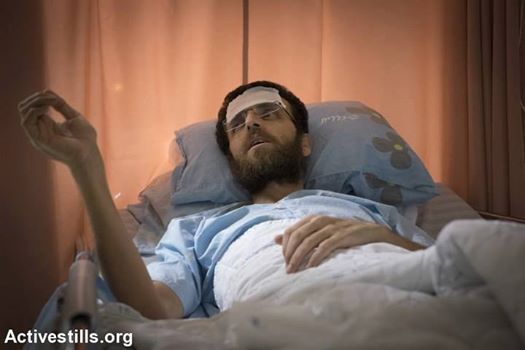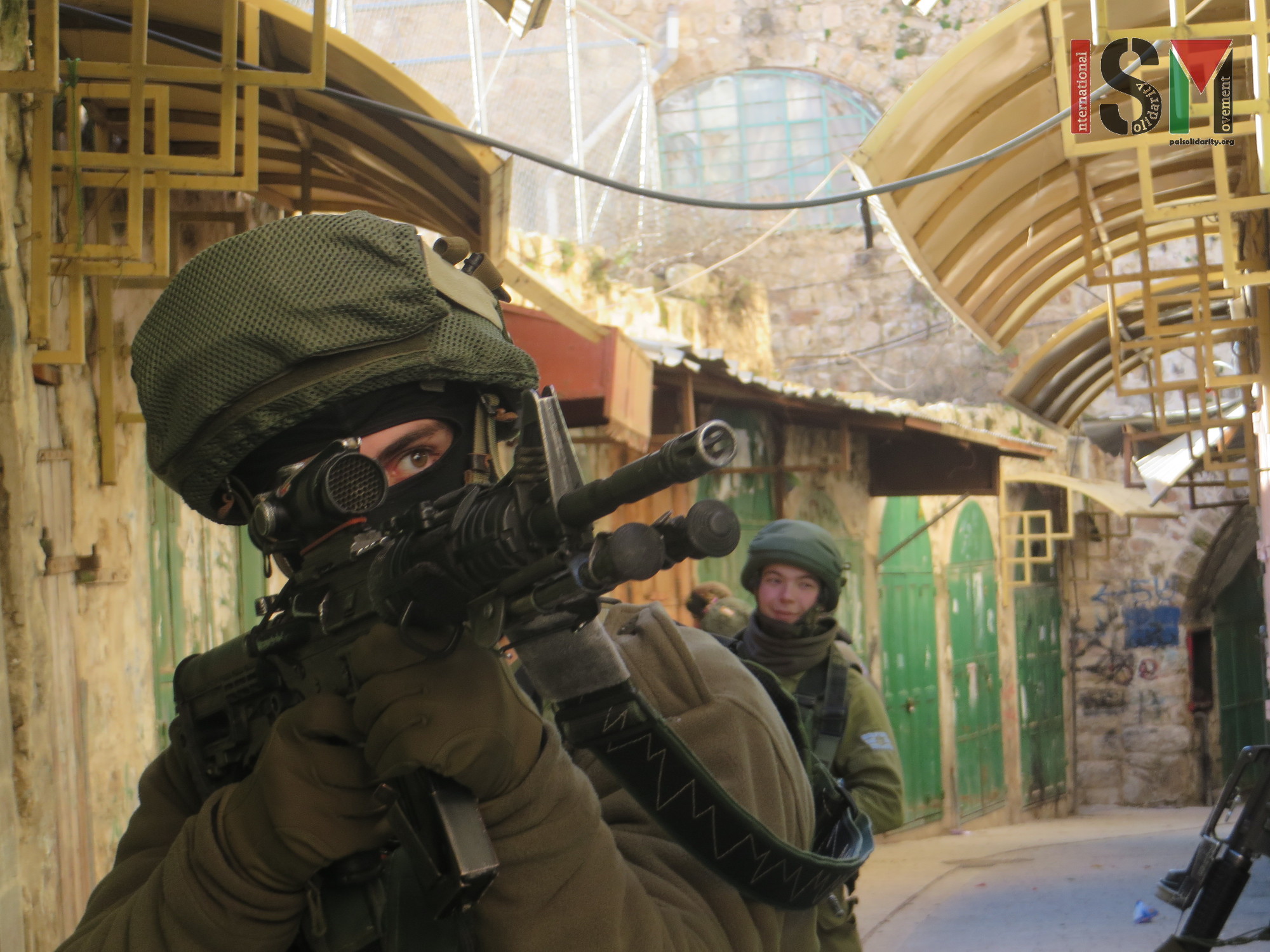Category: Features
-
Call for Action! Protest to demand Mohammed Al-Qeeq’s freedom!
11th February 2016 | International Solidarity Movement | Palestine URGENT CALL FOR ACTION – Palestinian journalist is nearing death on hunger strike for freedom. 33-year-old Mohammad Al-Qeeq’s health condition is deteriorating rapidly. He has lost over half his body weight, and is unable to see or talk properly; there is imminent threat to…
-
Home demolition in Beit Hanina forces family to move into Shuafat Refugee Camp, East Jerusalem
10th February 2016 | International Solidarity Movement, Ramallah Team | East Jerusalem, occupied Palestine Yesterday evening, we went to visit 55 year old widow, Kifaya Rishek, after her home in Beit Hanina, occupied East Jerusalem, was demolished on the 27th of January. After losing her house in Beit Hanina, where she lived together with…
-
Intimidating military patrol of Palestinian market
9th February 2016 | International Solidarity Movement, al-Khalil team | Hebron, occupied Palestine Tuesday, 9th February 2016, Israeli forces patrolled the Palestinian market in occupied al-Khalil (Hebron), harassing and intimidating residents. A group of soldiers marched through the souq, the main Palestinian market since the closure of Shuhada Street for Palestinians after the Ibrahimi mosque…



